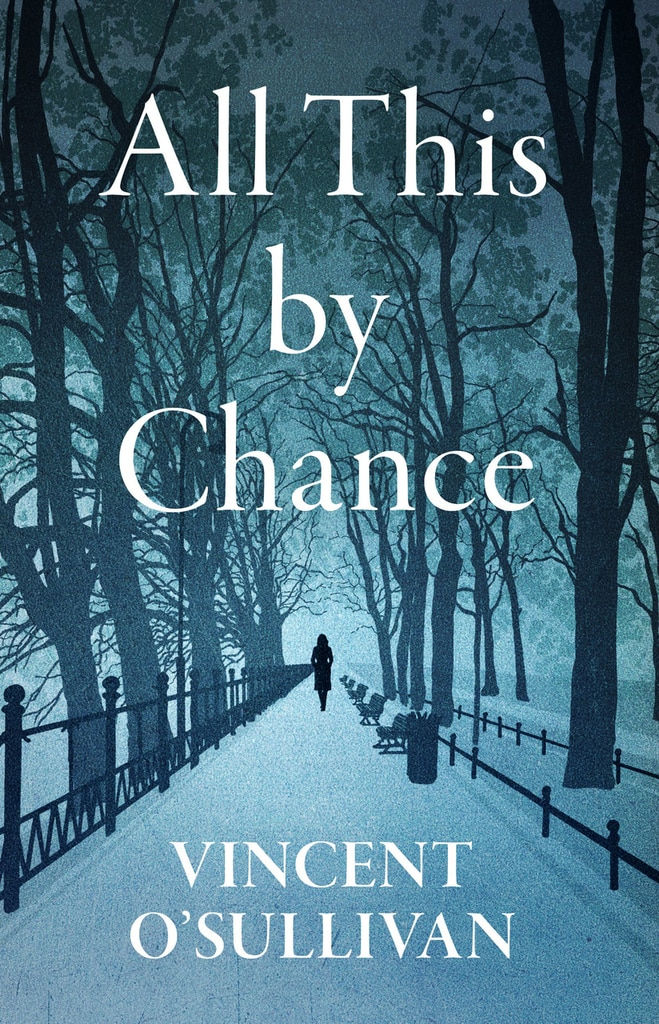All This by Chance by Vincent O’Sullivan
- NZ Booklovers

- Mar 7, 2019
- 3 min read

I was a little late arriving at this brilliant New Zealand novel, and hence I also read an interview with the author back in November. As one of New Zealand’s most celebrated authors, O’Sullivan is better known as poet or playwright. His last novel came out twenty years ago.
I enjoyed one of the statements in the interview, because it sets this book up beautifully. “As a schoolboy living in Westmere, O’Sullivan was intrigued by the Jewish family, their European connections as strange and foreign as the cries of coyotes he’d hear at night, drifting from the nearby Auckland zoo.” While he didn’t know where the family came from or indeed what happened to them, such memories, in this case their closeness to the Holocaust, are the spark from which writers’ stories grow.
All This by Chance is wonderfully diverse and expansive, spanning two thirds of the twentieth century and into the twenty-first. Characters escape the simplicity of New Zealand life for Europe and then return for the peace and simplicity, while their children and grand-children escape the insular nature of New Zealand for a more exciting life in Europe.
The novel follows a chronology, starting with Stephen’s escape from Auckland to a London just emerging from the Second World War, his return with wife Eva in 1948, their daughter Lisa in Greece in 1968, and later her working in London and Africa in the late 1970s, and finally to the daughter of Lisa’s brother David, again back in London but travelling to Poland in the search of long lost stories. Whilst moving in a strict chronology, the final chapter flicks back to 1938 to bring the story full circle.
We are following a family saga, watching it unfold not over weeks and months but across years and generations of a single family. The characters are so well painted, made even clearer by the shadowy nature of their lives and the unspoken horrors of the past. And that link to the past was so tenuous to begin with, that it could have been so easily missed. Stephen, working in a pharmacy in north London, encounters Eva at a dance, where both are out of place, somehow recognising that they are both in an alien setting, they run off and become lovers. As they are about to leave for a life together in New Zealand, they are united with a relative, an old woman who speaks only German and is supposed to be Eva’s aunt. Eva’s Jewish parents has sent her to England as a child to avoid the approaching horrors of the Holocaust. Her aunt, with her tortured body and lack of English, will haunt their remaining years and cast an influence over their children.
Stephen and Eva’s children are like chalk and cheese, Lisa like her father, calm and considered and learning medicine, while David is angry and comforted only by turning more towards the Jewish faith that has skipped a generation in his family. David’s daughter Esther will finally set the story in its proper context.
The dialogue between the characters is excellent, as you would expect of a playwright and the beauty of the descriptions of place and scene hold all the beauty that a poet brings. We are indeed lucky to find all these talents merged into one brilliant novel. Talking about his wife's aunt, a woman who suddenly appeared in their lives and about whom they knew almost nothing, Stephen says:
"...the woman they had buried was a life they had seen like a shape through frosted glass, its reality quite other to what they saw."
Reviewer: Marcus Hobson
Victoria University Press, RRP $35.00



